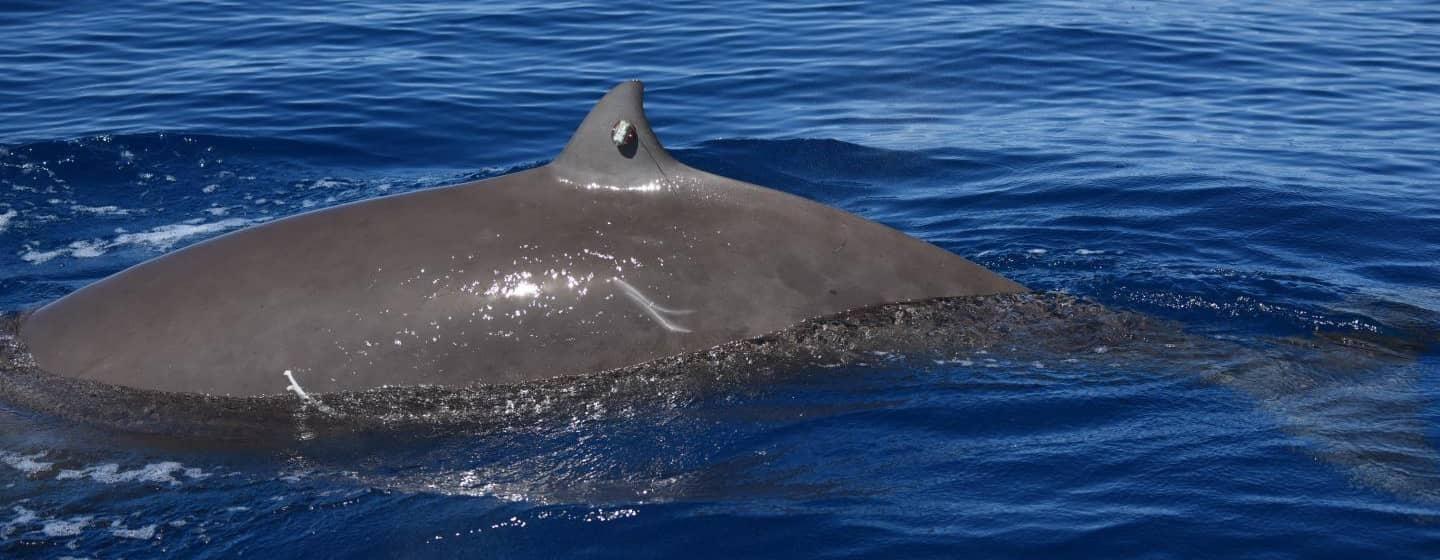Record Breaking Whale Dive Recorded Off North Carolina Coast


Think back to those times when you were swimming in a pool or at the beach and you took a deep breath to swim underwater.
How long could you hold your breath: 30 seconds? 45 seconds? One minute or longer?
Now imagine holding your breath for 22 minutes. That’s the record setting dive recorded in the Guinness Book of World Records. It was set by German free-diver Dane Stig Severinsen in 2012.
It’s definitely impressive. But researchers at the Duke University Marine Lab in Beaufort, NC have recorded what appears to be the longest recorded dive by a marine mammal.
It was made just off the NC coast near Cape Hatteras.
A Cuvier’s Beaked Whale was tracked diving for 222 minutes, or three hours and 42 minutes. The findings are reported in the Journal of Experimental Biology.
“These guys blow our expectations,” said Nicola Quick PhD, a Research Scientist at the Duke Lab, specializing in animal behavior and acoustics.
Cuvier’s Beaked Whales (scientific name Ziphius cavirostris) are already considered master divers.
They hold the record for the deepest recorded dive by a marine mammal at 3,000 meters, or 1.8 miles. The whales also held the previous record for the longest dive at 137.5 minutes, or just over two hours.
But for researchers, this dive was beyond anything they could imagine.
“We didn't believe it at first; these are mammals after all, and any mammal spending that long underwater just seemed incredible," said Quick in a statement. “It really did surprise us that these animals are able to go so far beyond what predictions suggest their diving limits should be.”
The study analyzed 3,680 dives by 23 whales over a five-year period.
Researchers attached satellite tracking tags to the whales’ dorsal fins. The record-breaking dive occurred in 2017 and the average dive lasted about one hour.
It’s not clear how the whales accomplish the feat of spending so much time underwater without surfacing. It’s possible the mammals may rely on large stores of oxygen and a slow metabolism. Once oxygen runs out, the animals may have the ability to tolerate lactic acid building up in their muscles from anaerobic respiration — a method of generating energy that doesn’t rely on oxygen.
The researchers expected to find that the whales spend more time at the surface recovering after long dives, but that doesn’t appear to be the case. While the average time spent at the surface after foraging dives was about 33 minutes, some whales were at the surface for longer periods while other whales made shorter trips underwater before beginning a long dive. Those variations lead to even more questions.
“We know very little about [the whales] at all,” Quick says, “which is interesting and frustrating at once.”